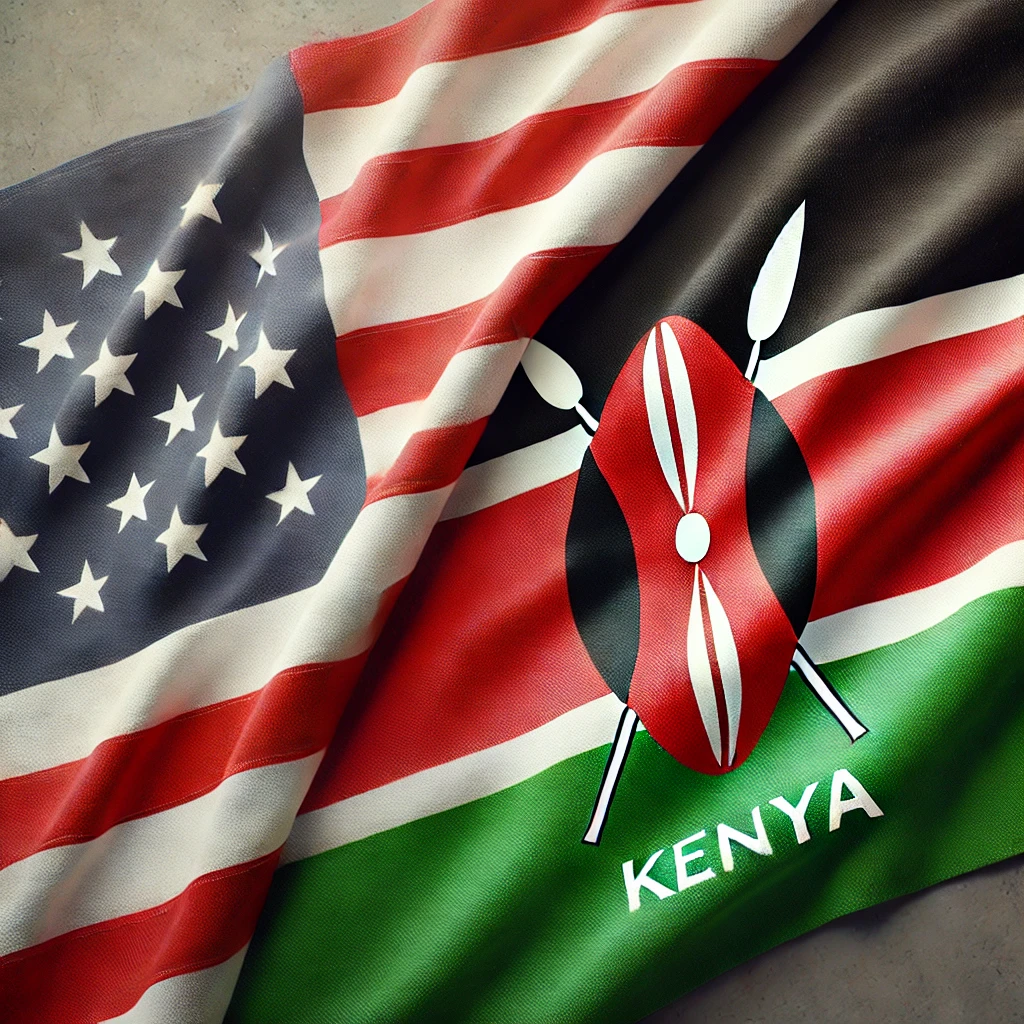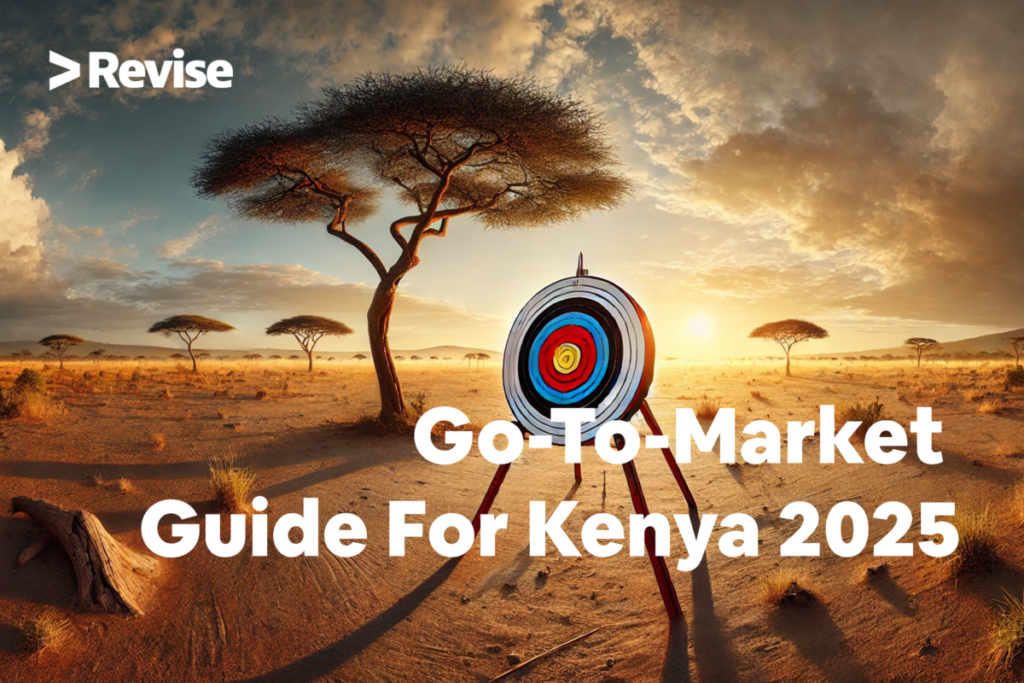Table of Contents
Kenya has a domestic market of over 50 million people and is the fourth largest economy in sub-Saharan Africa.
Introduction: Why Consider Doing Business in Kenya
Main reasons foreign companies should consider doing business in Kenya
- it is the gateway to the East African market and is the economic, commercial, ICT, financial, and logistics hub of the region;
- has a young, educated, entrepreneurial, and English-speaking population possessing high fluency in technology;
- has an abundant supply of renewable energy (more than 90% of Kenya’s on-grid electricity mix comes from renewable sources); and
- enjoys a strong bilateral relationships with the EU and the United States, including a Strategic Trade and Investment Partnership under negotiation.
Opportunities for Exporting U.S Products and Services to Kenya
In 2023, the total value of U.S. exports to Kenya stood at $493.5 million (Global Trade Atlas). The key U.S. exports were concentrated in petroleum products ($107 million), chemicals ($57 million), and aerospace and related parts ($63 million). The United States is Kenya’s fifth-largest single export market, accounting for 6% of Kenya’s exports. In 2023, imports from Kenya to the United States amounted to $895 million consisting mainly of apparel ($472 million), pharmaceuticals ($200 million), and fruits and tree nuts ($92 million) (Congressional Research Service).
Kenya has the strongest industrial base in the East Africa region and has been successful in attracting international exporters and investors, with many companies establishing local and regional operations to take advantage of Kenya’s strategic location, diversified economy, highly-skilled and productive workforce, well connected intermodal logistics routes, well-developed banking, insurance, legal, and consultancy services, and vibrant entrepreneurial and start up ecosystem.
Kenya has built strong bilateral and multilateral trade relationships and is a member of the East African Community (EAC), the Common Market for Eastern and Southern Africa (COMESA), and the Africa Continental Free Trade Area (AfCFTA). In July 2022, the United States and Kenya announced their intention to negotiate a Strategic Trade and Investment Partnership (STIP) and are hoping to complete negotiations by the end of 2024. The STIP identifies ten areas for the development of high standard commitments. The objectives of STIP include increasing investment; promoting sustainable and inclusive economic growth; benefiting workers, consumers, and businesses (including micro-, small-, and medium-sized enterprises); and supporting African regional economic integration.
According to the International Monetary Fund and the Kenya National Treasury, Kenya’s GDP is projected to grow by 5.3 and 5.5% respectively in 2024, driven by growth in the services sector and household consumption.
Economic Priorities on a Bottom-up Economic Transformation Agenda (BETA)
President William Ruto centers the Government of Kenya’s (GoK) economic priorities on a Bottom-up Economic Transformation Agenda (BETA), which is anchored on the following core pillars:
- Agricultural Transformation and Inclusive Growth,
- Transforming the Micro, Small and Medium Enterprises,
- Affordable Housing and Settlement,
- Universal Healthcare, and
- Digital Superhighway and Creative Industry.
Over the years, Kenya has attracted foreign direct investment (FDI), in the agriculture, finance and insurance, renewable energy, manufacturing, information and communication, and education sectors, though its FDI rates per capita lag behind most of its neighbors. U.S. FDI to Kenya was valued at $277 million in 2022. While venture capital inflows decreased by 35% globally in 2022 in Kenya, it increased by 33%in 2023, one of the highest growth rates on the continent. Additionally, in 2023 Kenya raised $720 million from debt and equity – more than any other African nation, according to global tech investment firm Partech’s 2023 Africa Tech Venture Capital report.
There are a variety of private-equity and development finance institutions (DFIs) present in Kenya, including multilateral institutions, such as the International Finance Corporation (IFC), the African Development Bank, and bilateral DFIs, including the U.S. Development Finance Corporation (DFC).
Key Industries in Kenya
Key industries in Kenya are:
- Agricultre
- Manufacturing
- Construction
- ICT
- Healthcare
- Touristm
Agriculture
Agriculture remains the backbone of Kenya’s economy and central to Kenya’s development strategy. According to the UN Food and Agriculture Organization (FAO), the sector remained dominant, accounting for approximately 33% of the gross domestic product (GDP) and another 27 % indirectly through linkages with other sectors The sector, however, stagnated in recent years due to continued drought that severely affected agricultural productivity. Additional constraints include the high cost of inputs and the transformation of agricultural land for real estate use to cater for the significantly growing population.
According to the FAO, agriculture accounts for 65% of Kenya’s export earnings. It is the largest employer in Kenya, with more than 40% of the total population (and more than 70% of Kenya’s rural population) earning at least part of their income from the sector. Agriculture in Kenya is large and complex, with a multitude of public, parastatal, non-governmental, and private players.
Manufacturing
Despite Kenya being the most industrially developed country in East Africa, the manufacturing sector accounted for only 7.8% of its GDP in 2022 (KNBS Economic Survey 2023). The key sub sectors that registered major growth in volume of output in 2022 were: motor vehicles, trailers, and semi-trailers; processing and preservation of fish; and basic metal products. The industrial sector accounts for 11.7 % of formal employment in the country.
Construction
The construction and real estate sector registered growth of 4.1% in 2022 compared to 6.7 % in 2021. This decline is attributed to lower public infrastructure investment within the period. To meet long term population growth needs, the GoK plans to heavily invest in public infrastructure development projects (roads, railways, energy production, ports, and airport modernization) and affordable public housing projects. However, the need for fiscal restraint given high public debt levels is expected to constrain public infrastructure investment in the medium-term and slow down the construction industry.
ICT
ICT remains one of the fastest-growing sectors, with internet penetration at 85.2 % (Internet World Stats). The GoK-approved goal of universal 4G coverage, digitalization of government services, and the growth in smartphone usage is spurring growth in e-commerce and other digital services.
Healthcare
The healthcare sector remains a priority for the GoK and holds opportunities for US companies. Over the past twenty years, the sector grew exponentially, and Kenya became a regional hub for critical medical care. Due to this growth, Kenyans added an astounding 15 years to their average life expectancy – from 48 to 63 years. This is the result of years of public and private investment in the healthcare system. According to Numbeo-2023, the Kenyan healthcare system ranked second best in Africa (after South Africa) on readiness to offer quality medical services through modern diagnosis and treatment as well as skilled and competent medical professionals. Many private healthcare, insurance, and pharmaceutical players choose Kenya as a regional hub for their operations.
Thanks to Kenya’s growing middle class and regional hub status for multinational companies and UN and humanitarian organizations, the demand for quality healthcare by citizens and the large expatriate community is likely to continue to grow.
Tourism
The tourism sector in Kenya is one of the most diverse and vibrant in East Africa, with increased investments in conference, eco-tourism, and leisure tourism. In 2022, the sector rebounded from the COVID-19 slump, with international arrivals increasing by 76.9 % from the previous year (KNBS Economic Survey 2022).

Trade between EU and Kenya
On July 1 2024, the EU-Kenya Economic Partnership Agreement (EPA) entered into force, representing a key milestone in the EU-Kenya Strategic Partnership, as the benefits of the Agreement are reciprocally applicable to both parties and not only to Kenya as before.
Kenya is the main economic hub of East Africa, and the EU is the first destination for its exports and its second largest trading partner. EU-Kenya trade relations thus have great potential for growth, as the Agreement boosts bilateral trade in goods and investment, reinforces good trade practices, facilitates mutually advantageous and sustainable economic relations and stimulates job creation.
Main benefits of the EPA on trade in goods
As in other EPAs, the EU-Kenya EPA provides for asymmetrical tariff elimination. This means that:
- The EU fully liberalizes access to its market from day 1 of the implementation of the EPA, allowing all goods from Kenya (mostly agricultural, such as vegetables, cut flowers, fruits, tea and coffee), except arms, to enter the EU market without tariffs and quotas.
- Kenya has committed to gradually reduce tariffs on imports from the EU over a maximum period of 25 years, benefiting from transitional periods. In addition, it can exclude sensitive products from liberalization, such as certain agricultural products, wines and spirits, chemicals, plastics, wood paper, textiles and clothing, footwear, ceramic products, glassware, articles of base metals and vehicles.
In addition, the agreement contains a protectionist clause that prevents the EU from applying general subsidies to agricultural exports to Kenya unless there is further political dialogue with Nairobi. It aims to protect Kenyan agriculture and food security from unfair competition from the EU.

U.S.- Kenya Relations
The United States established diplomatic relations with Kenya in 1964, following its December 1963 independence from the United Kingdom. The United States and Kenya have enjoyed cordial relations and an enduring partnership since Kenya’s independence. Relations became closer after Kenya’s 2002 democratic transition and subsequent improvements in civil liberties. Longstanding mutual interests in the region and wide-ranging cooperation on economic and security issues underpin a strong bilateral relationship. Kenya has East Africa’s most dynamic economy and is a growing regional business and financial hub. The ongoing negotiations for the U.S.-Kenyan strategic trade and investment partnership is an important pillar of the U.S.-Kenya relationship. In 2018, the United States and Kenya formally elevated the relationship to a strategic partnership and established a corresponding bilateral strategic dialogue. The dialogue prioritizes five pillars of engagement: economic prosperity, trade, and investment; defense cooperation; democracy, governance, and civilian security; multilateral and regional issues; and public health cooperation.
Bilateral Economic Relations between U.S. and Kenya
Kenya’s diversified economy has produced average annual GDP growth of five percent over the last decade, and an increasing number of U.S. companies have established their regional or Africa-wide headquarters in Nairobi. Kenya remains East Africa’s largest and most important business, financial, and transportation hub, with 80 percent of East Africa’s trade flowing through Mombasa Port. The United States is a top three destination for Kenya’s exports and the seventh largest source of its imports. Kenya enjoys preferential trade benefits under the African Growth and Opportunity Act through 2025. U.S. imports from Kenya include apparel, coffee, and tea. More than 120,000 U.S. citizens visited the country in each of the last two years, making the United States the leading source of tourists to Kenya. Launched in 2018, Kenya Airways’ three times per week New York-Nairobi direct flights provide seamless connections. U.S. private sector interest in Kenya remains robust, with numerous U.S. companies engaged in Kenya, especially in the technology, consumer goods, banking and finance, and healthcare sectors. The United States’ existing trade and investment framework agreements with both the East African Community and the Common Market for Eastern and Southern Africa include Kenya as a member state.
Investment Climate Statement
The U.S. Department of State Investment Climate Statements provide information on the business climates of more than 170 economies and are prepared by economic officers stationed in embassies and posts around the world. Kenya has a positive investment climate that has made it attractive to international firms seeking a location for regional or pan-African operations.
Market Challenges in Kenya
The Kenyan business environment continues to recover from the impact of COVID-19 and global economic slowdown, but challenges remain. These include:
- Tight fiscal and budget conditions
- Elevated cost of living, depreciating currency, and declining foreign exchange reserves
- Declining agricultural productivity caused by recurrent drought and shifts in land use
- Corruption and weak governance
- Weakened consumer spending
- Depressed public sector investment
According to Transparency International’s 2022 Global Corruption Perception Index, Kenya ranked 123 out of 180 countries (with 180 being the most corrupt). Claims of corrupt dealings, particularly in land transactions and large government contracts persist. Other governance issues also include government inefficiency, and weak regulatory and judicial systems.
Kenya’s public sector spending has been adversely affected by ballooning public debt. According to the Economist Intelligence Unit (EIU) Country Risk Report, Kenya’s sovereign risk assessment remains at CCC, with a wide budget deficit and the rising cost of servicing external debt poses risks. The Kenya government shifted its fiscal policy from stimulus towards consolidation, backed by an enhanced and extended $3.5 billion IMF program running to 2025. Kenya’s debt-to-GDP ratio rose to 69.8% in 2022 from 68.1% in 2021 (Deloitte), with debt service as a percentage of GDP rising more rapidly. Kenya’s debt pressures led to reported delays in some public sector procurements.
According to the EIU’s Kenya political risk assessment, as of August 2023, Kenya’s political risk rating remains at CC level, with a score of 71 (high risk). In 2022, Kenya held peaceful and transparent national elections and experienced a smooth and orderly transfer of power. However, discontent over cost-of-living pressures and social inequalities remain potential threats to political stability.
Kenya’s intellectual property rights (IPR) enforcement has improved gradually over recent years, but some U.S. firms remain reluctant to export to Kenya goods and services dependent on a strong IPR regime. According to the EIU, competition from low-cost Chinese imports and the prevalence of counterfeit and substandard goods are further barriers, especially in manufacturing.
Market Opportunities in Kenya
In 2023, the Ruto administration introduced significant reforms to the business environment in Kenya, including: 1) removing the domestic equity requirement for ICT-licensed companies operating in Kenya; 2) committing to maintain the national Tax Policy for a minimum of three years; 3) committing to pay all verified tax refund claims within six months or providing for offsets on the next year’s tax bill 4) removing the tax on unrealized gains on employee-allocated shares for startup companies; 5) amending the Special Economic Zone and Export Processing Zone laws to remove impediments to attracting new local and foreign investors; 6) announcing its intention to align with the OECD’s two-pillar inclusive framework on digital service taxes once finalized; and 7) announcing its intention to align with global best practices on data protection and localization. These reforms, most of which have been implemented in practice, led to major investments by U.S. companies.
The primary U.S. exports to Kenya are aircraft parts, liquefied butanes, plastics, medicinal and pharmaceutical products, machinery, and cereal/wheat. The most promising commercial opportunities in Kenya are in agriculture and agro-processing, aviation parts, infrastructure services, education, energy storage and transmission, financial services, ICT hardware and software, healthcare equipment, safety and security technologies, and e-services. In 2022, the strongest performing sectors of the economy included manufacturing (6.9%), wholesale and retail trade (7.9%), real estate, (6.7%), transportation and storage (7.2%), and financial and insurance activities (12.5%) (KNBS).
Factors that indicate strong market opportunities for U.S. businesses include ongoing U.S.-Kenya Strategic Trade and Investment Partnership (STIP) negotiations, Kenya’s position as a regional logistics, finance, and tech hub, an electricity grid operating with about 90 percent clean energy sources, and a talented, English-speaking workforce. Additionally, Kenya serves as a springboard for international firms looking to enter the region and remains the commercial hub of the region. Linkages from Kenya to other parts of the continent will only be strengthened with increased integration of the EAC and the AfCFTA. Currently, Kenya Airways operates a direct non-stop, daily Nairobi-New York flight and daily flights to 42 African, Asian, and European destinations. Several other global airlines also service Kenya through the Jomo Kenyatta International Airrport.
According to the EIU, the services sector is a key driver of economic growth and will continue to grow. For instance, the ICT sector maintained an average growth of 7.4 % per year between 2018 and 2022. Further growth opportunities include a sustained rise in e-commerce and e-banking alongside other digital services such as online healthcare and logistics. According to Statista’s Kenya Country Report, in 2023, digital revenues totalled $3.8 billion. Key contributors included e-commerce (89.4%), digital media (10.3%), e travel (5.0%) and e-services (4.8%).
Additional information on opportunities can be found in this report’s, “Leading Sector for U.S. Exports and Investment” section, as well as various market intelligence briefs, which can be found here.
Developing A Market Entry Strategy for Kenya
Entering the Kenyan market presents significant opportunities for foreign companies, but success requires a well-planned strategy that considers the unique aspects of the local business environment. To effectively tap into Kenya’s growing economy, it’s crucial to develop a deep understanding of the market, identify the best entry channels, and adapt your business approach to the local context.
Understanding the Kenyan Market
Before making any investment, foreign companies must thoroughly understand the Kenyan market. This includes gaining insights into the economic landscape, consumer behavior, regulatory environment, and competitive dynamics. Kenya’s market is diverse, with varying needs and preferences across its regions, so a one-size-fits-all approach is unlikely to succeed.
Choosing the Right Market Entry Channels
Selecting the appropriate market entry channel is essential for success in Kenya. Foreign companies should consider various options based on their products, services, and overall business goals. Here are some common entry strategies:
- Partnerships with Local Companies: One of the most effective ways to enter the Kenyan market is by partnering with a local agent or distributor. These partners bring valuable local knowledge, established networks, and credibility, helping foreign companies navigate the market more effectively.
- Franchise or License Agreements: Another option is to enter into franchise or license agreements with Kenyan businesses. This approach allows foreign companies to expand their brand presence in Kenya while leveraging the local partner’s expertise in operations and market penetration.
- Direct Sales: For some sectors, direct sales to end-users might be a viable option. However, this requires a solid understanding of the target market and a well-crafted marketing strategy. Companies need to invest in effective advertising, which increasingly involves digital platforms, including social media and targeted campaigns.
Marketing and Advertising in Kenya
When it comes to marketing in Kenya, it’s important to tailor your approach to the local audience. While English is widely spoken, Swahili and other local languages are prevalent, particularly in rural areas. Companies should consider incorporating Swahili or vernacular languages in their advertising campaigns to resonate with a broader audience.
Additionally, digital marketing is on the rise in Kenya, with a growing number of consumers accessing information and making purchases online. Social media platforms like Facebook, Instagram, and Twitter are popular, making them key channels for reaching potential customers. Targeted campaigns that consider local culture, values, and preferences are likely to be more successful.
The Importance of Market Research
Conducting thorough market research is a critical step before entering the Kenyan market. Ideally, this involves visiting the market to engage with potential local partners, build relationships, and assess opportunities firsthand. However, if in-person visits are not feasible, virtual engagements can be a valuable alternative.
Revise offers a range of services to support businesses in this area, including market counseling and export strategy development. Through virtual events, webinars, and other resources, Revise can provide essential market insights and business intelligence at a reduced cost and greater convenience.
Leveraging Local Business Associations
Kenya has a strong network of business associations and organizations that can be valuable resources for foreign companies. These associations provide business development support, networking opportunities, and market intelligence. For instance, the American Chamber of Commerce (AmCham Kenya) is a well-regarded, membership-based organization that offers a wealth of services for U.S. businesses looking to enter or expand in the Kenyan market.
For companies interested in exploring the Kenyan market or refining their market entry strategy, Revise is here to help. We provide expert market counseling and export strategy development support tailored to your needs. Whether you’re considering a partnership with a local distributor, entering into a franchise agreement, or exploring direct sales, Revise offers the services you need to succeed.
Contact Revise today to discover how we can help you navigate the complexities of the Kenyan market and unlock new business opportunities. Our team of experts is ready to assist you in making informed decisions and developing a winning strategy for your market entry in Kenya.



